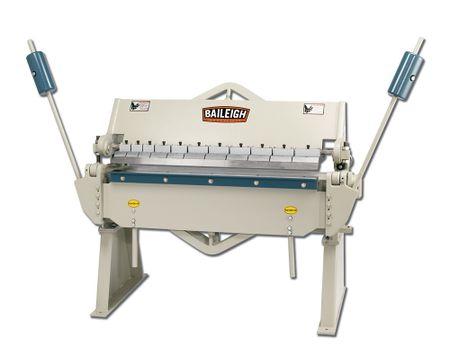Difference between revisions of "Bending Brake"
Jump to navigation
Jump to search
| Line 25: | Line 25: | ||
=== Bending Steps === | === Bending Steps === | ||
#Ensure that your sheet metal is thinner or equivalent to 14 gauge sheet metal, and ensure that it is less than 48" in width. | #Ensure that your sheet metal is thinner or equivalent to 14 gauge sheet metal, and ensure that it is less than 48" in width. | ||
| − | |||
#If making a bend for a box or a pan, adjust the fingers so that the equivalent width of the fingers is just shorter than your sheet metal. | #If making a bend for a box or a pan, adjust the fingers so that the equivalent width of the fingers is just shorter than your sheet metal. | ||
| − | + | #Adjust the clamp handle to allow room to insert your work piece. | |
| + | #Insert your work piece to the line you want to bend, and clamp your piece securely. | ||
| + | # | ||
== Safety == | == Safety == | ||
== Documentation == | == Documentation == | ||
Revision as of 18:53, 1 February 2019
A bending brake is a metalworking machine that allows the bending of sheet metal. The brake in the shop is a Chicago W31 steel box and pan brake. In a box-and-pan brake (also known as a finger brake), the clamping bar includes several removable blocks, which may be removed and rearranged to permit bending of restricted areas of a piece of sheet metal or of already partially formed pieces. After bending, a box or pan form is then completed by screw, solder, weld, rivet, or other metal fixing process.
Resources
Training
Bending Steps
- Ensure that your sheet metal is thinner or equivalent to 14 gauge sheet metal, and ensure that it is less than 48" in width.
- If making a bend for a box or a pan, adjust the fingers so that the equivalent width of the fingers is just shorter than your sheet metal.
- Adjust the clamp handle to allow room to insert your work piece.
- Insert your work piece to the line you want to bend, and clamp your piece securely.
